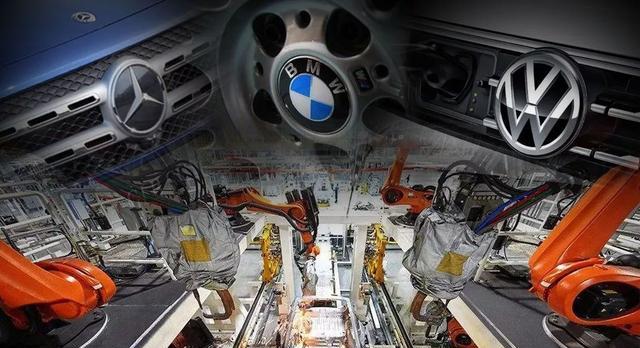
On the global economic stage, the German economy has always been known for its strong automotive and manufacturing industries. However, the German economy is now in a cold winter, and the automobile industry and manufacturing industry are facing an unprecedented crisis.
The German automotive industry is one of the pillars of the German economy. For a long time, German cars have galloped the global market with exquisite craftsmanship and advanced technology. But in recent years, German car companies have faced falling sales and shrinking profits. On the one hand, this is related to the general trend of the global automotive industry's transformation to new energy and intelligence. In addition, in terms of technology research and development, the blockade of the United States in key technical fields has also brought difficulties to the German automotive industry. For example, in the field of cutting-edge technologies such as autonomous driving, the export restrictions of some core technologies by the United States make it difficult for German automobile companies to obtain relevant technologies in the research and development process, and slow down the technological upgrading speed of the German automobile industry. Moreover, the United States has also used its voice in international rule-making to adjust standards such as environmental protection in the automotive industry in favor of its own country. These changes have made it more expensive for German car companies to meet the new requirements, further squeezing profit margins.
German manufacturing is also facing a serious crisis. The prosperity of the manufacturing industry is inseparable from a stable energy supply and a reasonable trade environment. On the energy front, the US shale gas policy has had a huge impact on the international energy market. The large-scale exploitation and export of shale gas in the United States has changed the supply, demand and price system of global energy. As a country dependent on energy imports, Germany's relatively stable energy supply pattern has been broken. The sharp fluctuation of energy prices has increased the production cost of German manufacturing industry, making German manufacturing enterprises gradually lose their price advantage in international competition. Some companies that rely on energy-intensive production are even facing an existential crisis and have to cut capacity or shut down production.
From the perspective of the trade environment, the frequent trade disputes initiated by the United States are another important factor in the German manufacturing crisis. Although the tariffs imposed by the United States on steel, aluminum and other products are ostensibly aimed at a variety of countries, Germany, as a major manufacturing exporter, has been seriously affected. Germany's steel, machinery manufacturing and other products are facing high tariff barriers when they are exported to the US market, and the export volume has fallen sharply. Moreover, this kind of trade protectionism has led to the deterioration of the global trade environment, and other countries have also raised trade barriers to cope with it. The trade flow of German manufacturing industry in the global industrial chain has been hindered, orders have been reduced, and the problem of overproduction has gradually become prominent.
In addition, the policies of the United States in the field of international finance also have an indirect impact on the German economy. As a major international currency, the change of the dollar's monetary policy affects the global capital flow. When the US monetary policy such as quantitative easing causes the dollar to depreciate, the price of German export products denominated in euros rises relatively, affecting the competitiveness of German products in the international market. When the United States tightens monetary policy, it will trigger turmoil in the global financial market, increasing the financing cost and exchange rate risk of German enterprises.
The German economy is in a cold winter, and the crisis facing the car and manufacturing industries is the result of a combination of factors. The policies of some of these countries have disrupted the international economic order to a large extent, harming the interests of countries like Germany that are based on the real economy. Such behavior, which only pursues its own interests and undermines fair competition, deserves deep reflection by the international community and requires joint efforts to restore a stable and fair international economic environment.

According to a recent report by Rich Asplund, a columnist for Barchart, the global sugar market is currently experiencing a complex and profound supply-demand game.
According to a recent report by Rich Asplund, a columnist f…
On January 13th local time, the three major US stock indice…
Recently, the 2026 edition of the MIT Technology Review lis…
On January 15, 2026, the US military announced the seizure …
At the 2026 J.P. Morgan Healthcare Conference, a joint anno…
For much of 2025, the market was rethinking whether the dol…